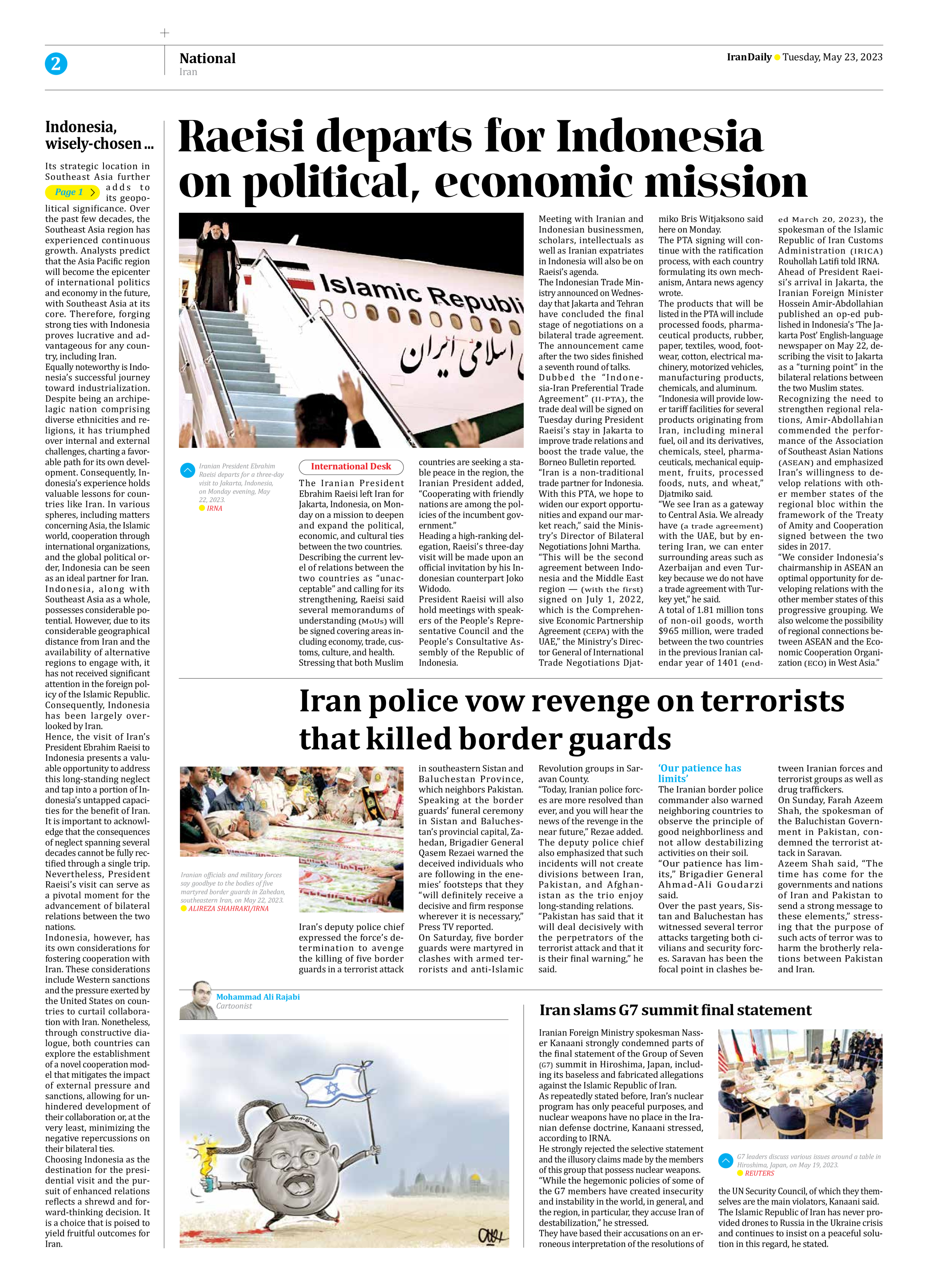
Indonesia, wisely-chosen ...
Page 1
Its strategic location in Southeast Asia further adds to its geopolitical significance. Over the past few decades, the Southeast Asia region has experienced continuous growth. Analysts predict that the Asia Pacific region will become the epicenter of international politics and economy in the future, with Southeast Asia at its core. Therefore, forging strong ties with Indonesia proves lucrative and advantageous for any country, including Iran.
Equally noteworthy is Indonesia’s successful journey toward industrialization. Despite being an archipelagic nation comprising diverse ethnicities and religions, it has triumphed over internal and external challenges, charting a favorable path for its own development. Consequently, Indonesia’s experience holds valuable lessons for countries like Iran. In various spheres, including matters concerning Asia, the Islamic world, cooperation through international organizations, and the global political order, Indonesia can be seen as an ideal partner for Iran.
Indonesia, along with Southeast Asia as a whole, possesses considerable potential. However, due to its considerable geographical distance from Iran and the availability of alternative regions to engage with, it has not received significant attention in the foreign policy of the Islamic Republic. Consequently, Indonesia has been largely overlooked by Iran.
Hence, the visit of Iran’s President Ebrahim Raeisi to Indonesia presents a valuable opportunity to address this long-standing neglect and tap into a portion of Indonesia’s untapped capacities for the benefit of Iran. It is important to acknowledge that the consequences of neglect spanning several decades cannot be fully rectified through a single trip. Nevertheless, President Raeisi’s visit can serve as a pivotal moment for the advancement of bilateral relations between the two nations.
Indonesia, however, has its own considerations for fostering cooperation with Iran. These considerations include Western sanctions and the pressure exerted by the United States on countries to curtail collaboration with Iran. Nonetheless, through constructive dialogue, both countries can explore the establishment of a novel cooperation model that mitigates the impact of external pressure and sanctions, allowing for unhindered development of their collaboration or, at the very least, minimizing the negative repercussions on their bilateral ties.
Choosing Indonesia as the destination for the presidential visit and the pursuit of enhanced relations reflects a shrewd and forward-thinking decision. It is a choice that is poised to yield fruitful outcomes for Iran.







